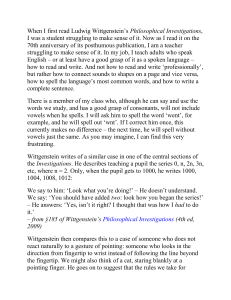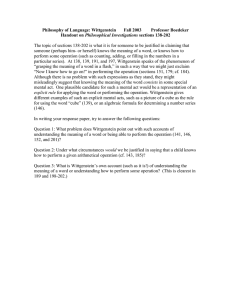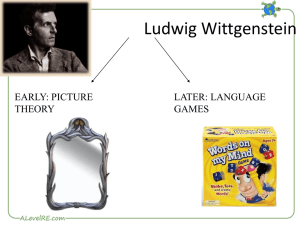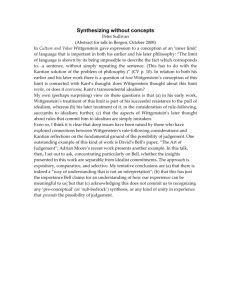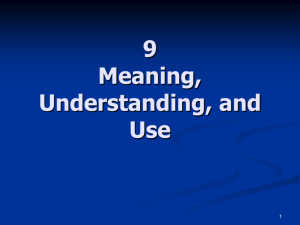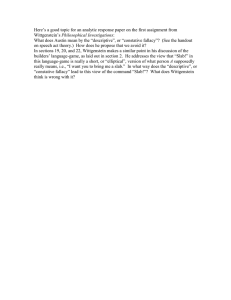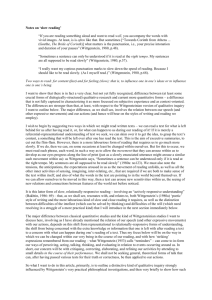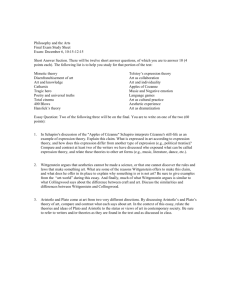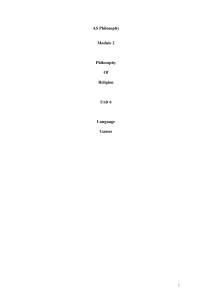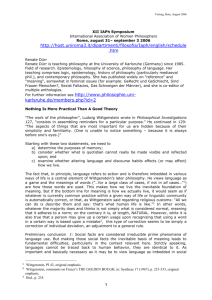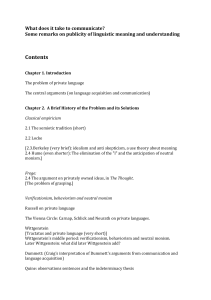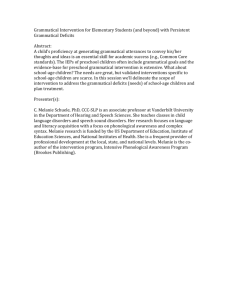Wittgenstein and the Grammar of Poetic Excess
advertisement
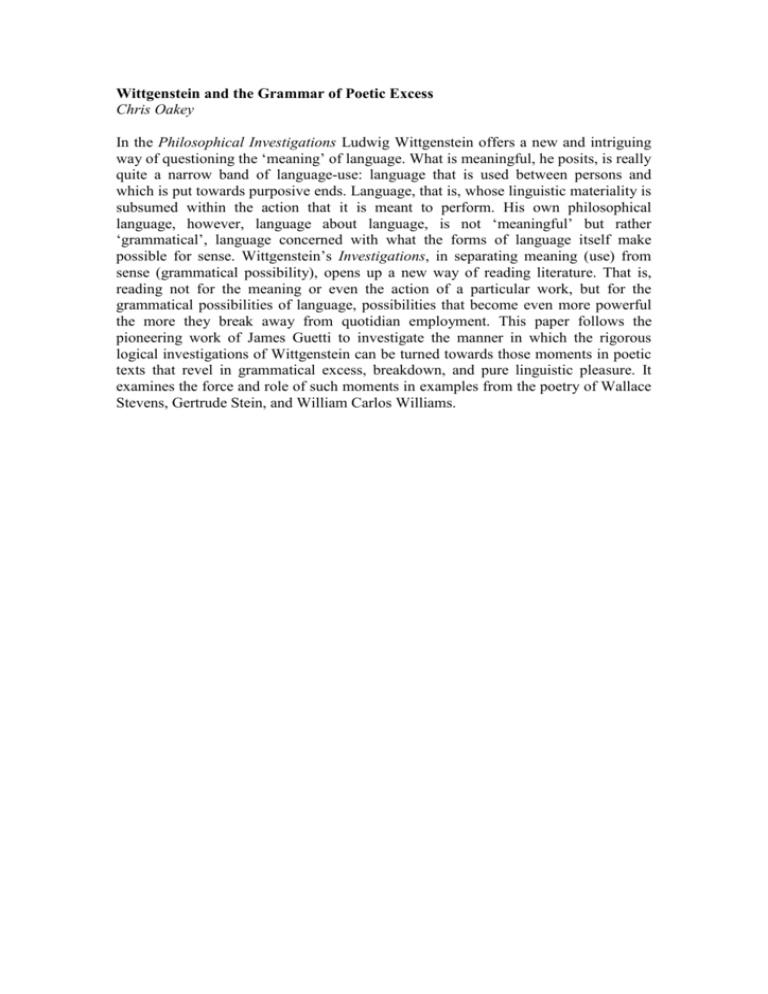
Wittgenstein and the Grammar of Poetic Excess Chris Oakey In the Philosophical Investigations Ludwig Wittgenstein offers a new and intriguing way of questioning the ‘meaning’ of language. What is meaningful, he posits, is really quite a narrow band of language-use: language that is used between persons and which is put towards purposive ends. Language, that is, whose linguistic materiality is subsumed within the action that it is meant to perform. His own philosophical language, however, language about language, is not ‘meaningful’ but rather ‘grammatical’, language concerned with what the forms of language itself make possible for sense. Wittgenstein’s Investigations, in separating meaning (use) from sense (grammatical possibility), opens up a new way of reading literature. That is, reading not for the meaning or even the action of a particular work, but for the grammatical possibilities of language, possibilities that become even more powerful the more they break away from quotidian employment. This paper follows the pioneering work of James Guetti to investigate the manner in which the rigorous logical investigations of Wittgenstein can be turned towards those moments in poetic texts that revel in grammatical excess, breakdown, and pure linguistic pleasure. It examines the force and role of such moments in examples from the poetry of Wallace Stevens, Gertrude Stein, and William Carlos Williams.
